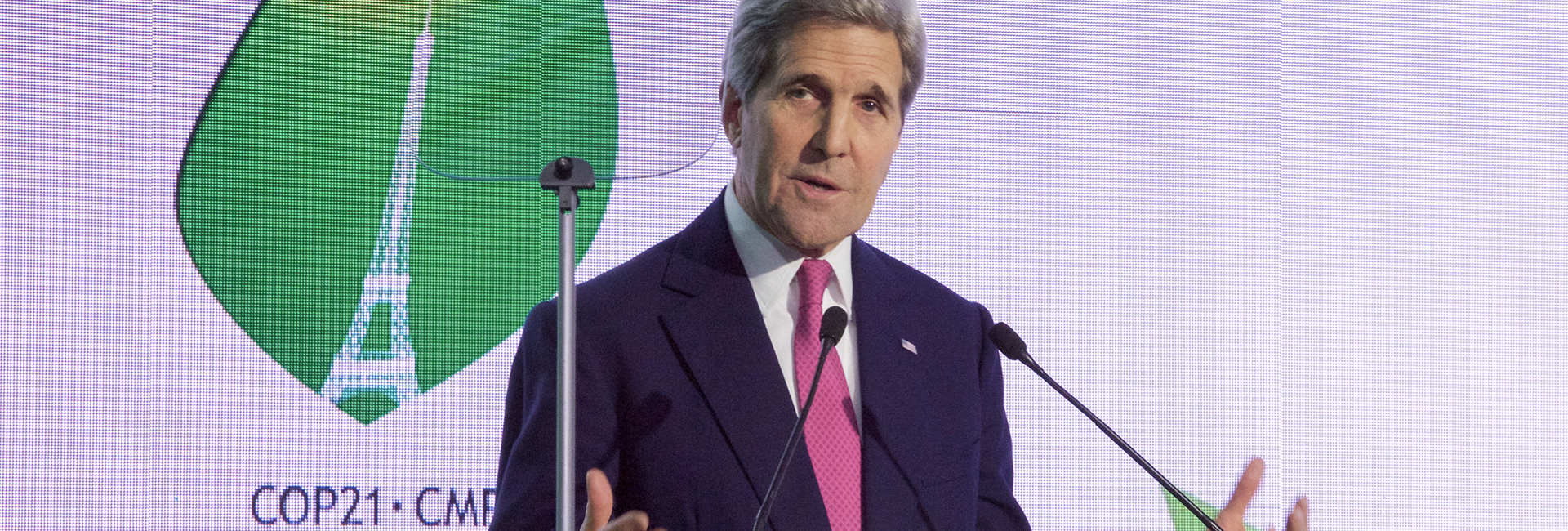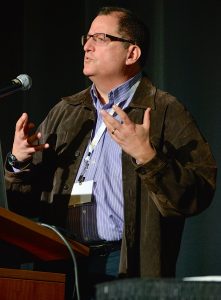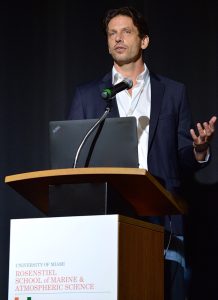

Rosenstiel faculty contribute to international discourse on climate change by providing cutting-edge climate science research.
In its fifth and most recent assessment report, the Intergovernmental Panel on Climate Change concluded that the climate is unequivocally warming; human activity is the main cause of that warming; and unless we take steps to reduce our greenhouse gas emissions, the risks to people and ecosystems will be severe, pervasive, and irreversible.
Spanning 5,000 pages and released in four stages over 2013-2014, the report, which was authored by hundreds of scientists around the world, including two University of Miami Rosenstiel School of Marine and Atmospheric Science faculty, is the most comprehensive analysis of climate change ever produced. It also served as a basis for the historic agreement the United States and 195 other nations reached in Paris in December 2015 to significantly reduce carbon dioxide and other greenhouse gas emissions by the turn of the next century.
The Rosenstiel School's Ben Kirtman, professor of atmospheric sciences, was a coordinating lead author for the chapter on near-term predictions and projections in the IPCC’s fifth report, while Brian Soden, also a professor of atmospheric science, was lead author for the chapter on observations. Soden was also a lead author on the IPCC’s fourth assessment report, released in 2007, the same year the IPCC was awarded the Nobel Peace Prize.
Established in 1988 by the World Meteorological Organization and the United Nations Environment Programme to assess the science, impacts, and risks of climate change and the options for mitigating and adapting to it, the IPCC issued its first assessment report in 1990. Calling for a coordinated, international response to a looming crisis, the 1990 report played a key role in the creation of the United Nations Framework Convention on Climate Change (UNFCCC), the primary international treaty to reduce global warming and cope with its consequences.
About the Photo
United States Secretary of State John Kerry speaks at the COP21 Climate Change Confernce in Paris in December 2015. Photo Credit: U.S. Department of State.
Join the Conversation
Follow on Twitter:
Rosenstiel School, @UMiamiRSMAS
University
of Miami, @univmiami
UM
News, @univmiaminews
Watch President Obama Address Climate Change at COP21
At the conference, which also featured the Rosenstiel School’s Amy Clement, professor and associate dean of atmospheric sciences, and Kenny Broad, professor and chair of marine ecosystems and society, Soden played a prophetic clip from Frank Capra’s 1958 TV movie The Unchained Goddess. The first televised warning about the dangers of carbon dioxide, global warming, and rising seas, the film singled out Miami as being most vulnerable to rising waters.
A few weeks after the IPCC conference at the University of Miami, leaders of 196 nations gathered in Paris for the UNFCCC’s 21st Conference of the Parties (COP 21) to adopt the first universal, global climate agreement aimed at creating a low-carbon future.
The agreement calls for ratifying nations to substantially reduce their greenhouse gas emissions and keep global average temperatures from rising more than 2°C (3.6°F) above what they were in pre-industrial times—a threshold that scientists say would profoundly change life on the planet as we know it.
- Maya Bell / UM News

